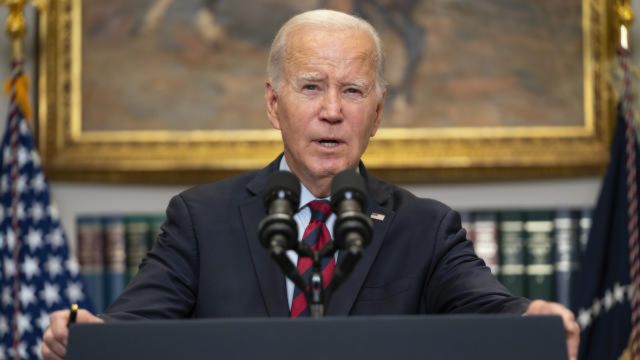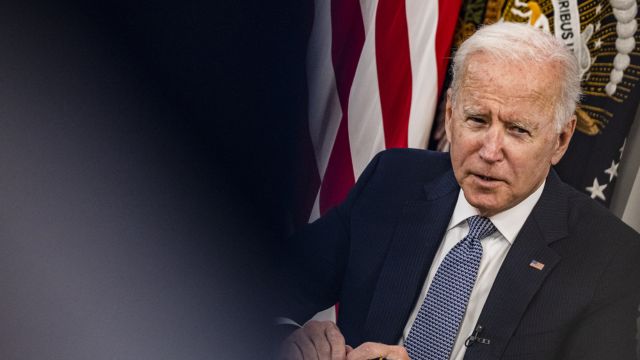Biden’s New Plan Promises Student Loan Cancellations for Some in February: Report Says
WASHINGTON – In February, the Biden administration will begin to cancel certain debtors’ student loans as part of a new repayment scheme that will go into effect almost six months ahead of schedule.
Under the new SAVE repayment plan, loan forgiveness was initially scheduled to start in July. However, President Joe Biden announced on Friday that it would be hastened to give homeowners faster relief. According to a statement from the Democratic president, it’s part of an attempt “to act as quickly as possible to give more borrowers breathing room” and get rid of their student debt.
If borrowers have paid at least ten years’ worth of payments, are enrolled in the new SAVE plan, and originally borrowed $12,000 or less to attend college, they may be eligible for cancellation. According to the Education Department, the number of borrowers who will be qualified for cancellation in February is still unknown.

In addition to a different plan to eliminate millions of Americans’ up to $20,000 in debt, Biden unveiled the revised repayment schedule last year. His idea for mass forgiveness was rejected by the Supreme Court, but the repayment scheme has avoided that degree of legal scrutiny thus far. The repayment plan is a modification of the current income-based systems that Congress established more than ten years ago, in contrast to his suggestion for a mass cancellation, which had never been done before.
Last year, Republicans in Congress attempted in vain to thwart the new repayment arrangement through resolutions and legislation.
Republicans criticized the expedited forgiveness, accusing it of being a ploy to gain up supporters before the 2024 presidential contest. The head of the House Committee on Education and the Workforce, Republican representative from North Carolina, Rep. Virginia Foxx, claimed that it will “dump even more kerosene on an already raging student debt fire.”
Compared to a few existing income-driven repayment programs that it is intended to replace, the new repayment plan offers conditions that are far more generous. The new plan allows cancelation in as short as 10 years, whereas previous programs required 20 or 25 years of payments. Millions of borrowers also see their monthly payments reduced by the new strategy.

More than $12,000 worth of withdrawals will be eligible for cancellation but with a lengthier lead time. There is an extra year of payments after the first ten years for every $1,000 borrowed over $12,000.
For borrowers with only undergraduate loans, the maximum payback term is twenty years; for those with any graduate school loans, it is twenty-five years.
According to the Biden administration, Americans who attended community colleges—which are often less expensive than four-year universities—would benefit most from the relief that will be provided next month. Education Secretary Miguel Cardona stated that the goal of the proposal is to put community college students “on a faster track to debt forgiveness than ever before.”
Inversely, people who have lower student debt balances typically struggle more. Millions of Americans are the main culprits behind it; they take out student loans and then drop out, leaving them with the disadvantage of debt rather than the benefit of increased income.
Republicans have blasted the new repayment plan, claiming that taxpayers who did not attend college will suffer while wealthy Americans with college degrees benefit. Some claim it’s a covert effort to implement Biden’s failed campaign promise of free community college, which never gained traction in Congress.
According to the Education Department, balances for qualified borrowers enrolled in the SAVE plan will be immediately erased starting next month. Borrowers who have not enrolled but may be eligible will receive emails from the department.
A portion of the plan’s provisions went into effect this summer; more Americans are now qualified to have their monthly charge reduced to zero, and the plan keeps interest from compounding as long as borrowers make their payments on time.
A reduction in the amount that borrowers can pay—from 10% in prior income-driven repayment programs to 5% of their discretionary income—is one of the other provisions that will go into effect in July.
Separately, the Biden administration is working on another widely-implemented canceling scheme. Biden asked the Education Department to try again under a new legal authority after the Supreme Court rejected his initial scheme. The department has been developing a fresh plan that will offer relief to certain borrower categories.
Several private foundations provide financial assistance for the Associated Press’s coverage of education.
